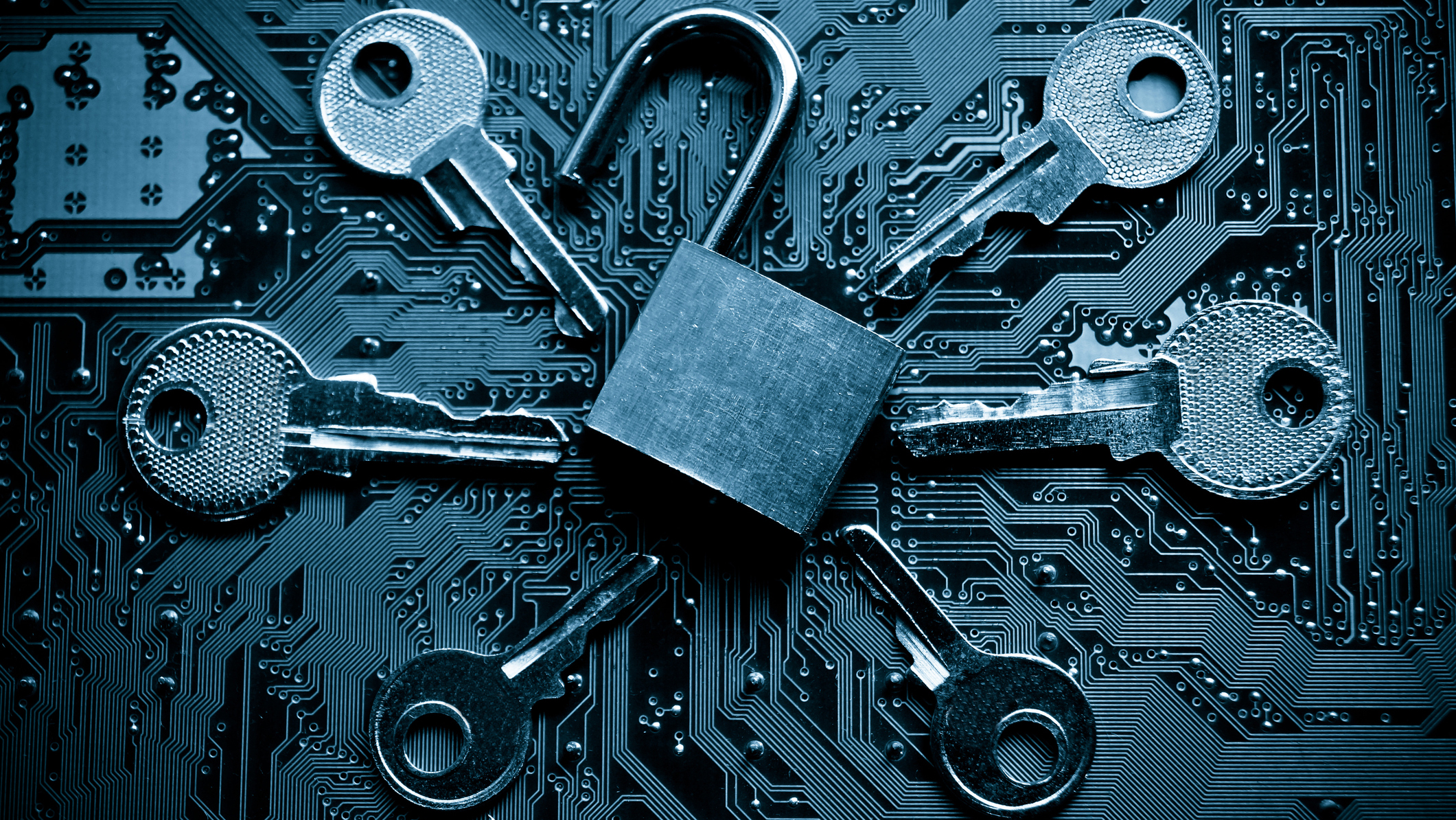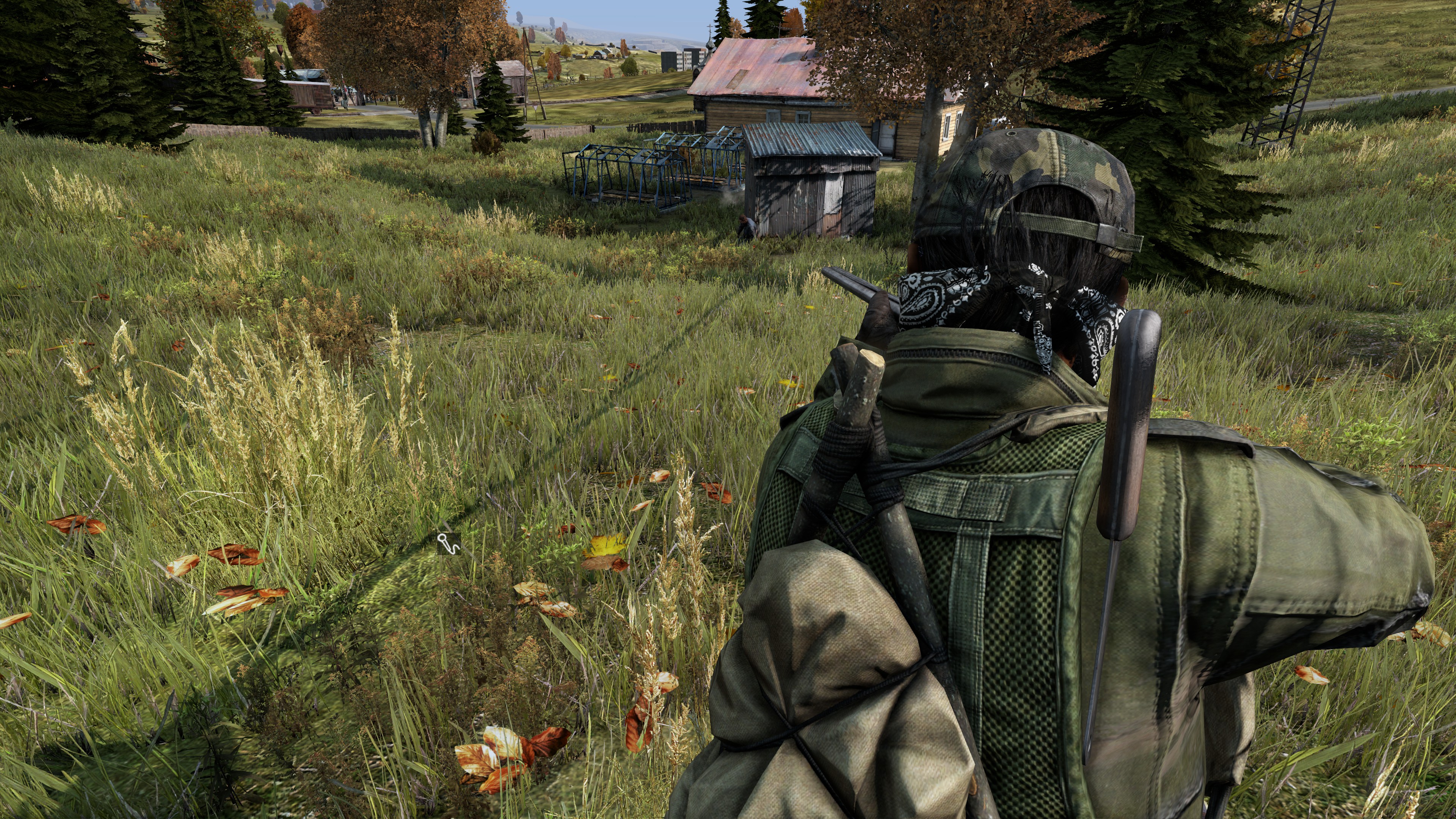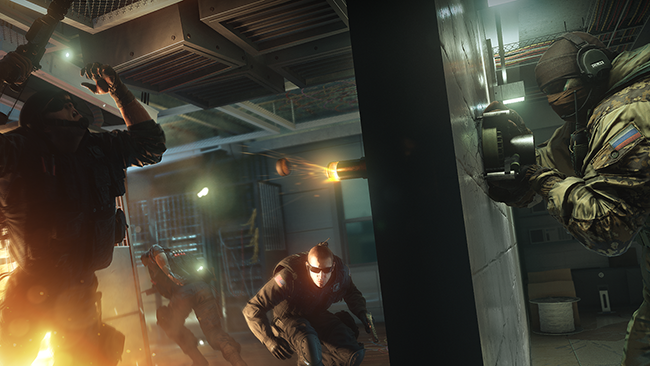House Mouse Are U Cheating Again Stamp
Why is it so hard to finish cheating in videogames?

Money is power, you lot oft hear, and still for years Valve Corporation and all its billions was powerless to stop a $twenty cheat called LMAOBOX from ruining the fun of Team Fortress 2 for thousands of players. Sometimes players would send in proof of cheats with video evidence, just careful players (often snipers) could use the cheat to show all enemy players on the map, force melee criticals, enable auto-aims and a host of other unsporting tactics with impunity.
When deliverance came in April 2016, it came non from the type of tech i might suppose Valve'due south billions could buy, but rather from a chance posting of LMAOBOX's source code on an obscure forum. A good Samaritan passed it on to Valve itself, which quickly incorporated it into its Valve Anti-Crook Organization and soon after slapped hordes of players with bans. The sweep made some prime number catches, including well-nigh 200 players from Squad Fortress 2's UGC esports league.
It was hardly an isolated incident, particularly in PC gaming. Cheating so thoroughly plagues gaming that it'south long been mutual to type out "VAC" on Twitch in reference to Valve'southward crook sniffer in jest or seriousness when a player scores a cute headshot in a game like Counter-Strike: Global Offensive. It made Tom Clancy'due south The Segmentation near unplayable after launch. Aimbotters overran Star Wars Battlefront.

I'd always expected evasive answers when tackling this topic, but I was surprised by the number of edgeless refusals I heard.
And so what'southward the deal? Why's it so difficult to stop all this with the piles of money large developers and publishers often have at their disposal? It'south such a thorny outcome that almost no i wants to talk virtually it. I'd always expected evasive answers when tackling this topic, just I was surprised past the number of blunt refusals I heard from virtually every developer I spoke with about cheating. Some, similar Blizzard, hit me with a unproblematic reply about how "information technology's difficult to get into particular." Others, like Valve, ignored my emails. I virtually scored an interview with one of the publishers most affected past adulterous, only to exist told at the last minute that their intended spokesman was going on a long vacation. And so, naturally, he'd be busy subsequently that.
Merely Eugen Harton, lead producer at Bohemia Interactive, bucked the tendency and chose to talk. Bohemia Interactive makes for a good instance report, as DayZ and Arma 3 have long been plagued past cheats, some of which Harton says go for as much equally $500. However he and his comparatively small team continually crusade against them despite beingness confronted with expiry threats, the harassment of relatives, and the sharing of the team's personal information. At GDC, Harton related how one aroused thespian had started trying to amass $10,000 to physically face Harton at the previous yr's event, just had only managed to pull together around $300.

I of the main issues, he says, is that the openness nosotros PC gamers beloved to celebrate makes it hard to command what's going on in PC games. Since most files required to run a game are on the player's PC and out of reach of the developer, that role player can work with the game files to exploit bugs or flaws, automate systems that would normally require man input, or any number of other offensive actions.
"Because games are applications running in open up and uncontrolled environments [ie, a client's PC], we can only put barriers effectually them that are becoming harder and harder to solve, basically raising the skill ceiling needed to create such cheats."
For Harton, those barriers include what he calls "sanity checks," which monitor actions that always perform a sure fashion, such equally bullet trajectory, and flag violations of those physics. Many cheat coders also utilize the same code variants in their works, and recognizing those patterns can help discover the actual cheat. He says he and Bohemia Interactive operate nether ii rules in regards to adulterous, that "anything on the client tin be and will be hacked" and that "server side code is only as secure every bit the server."
"The all-time solution would be to run everything server side, which we cannot practise for the nigh function," he says.
Having all the files for a game on the developer'southward server would prevent most cheats, although Harton cautions that this method yet leaves open the "possibility of parcel injection and manipulation." If there'southward nil to discover the manipulation of the encrypted bundle information moving between server and client in identify, cheaters could flim-flam the server into thinking the character on the customer has more health than it actually does. Moving everything server-side also brings us into the thorny bounds of heavy Digital Rights Management, of course, but Harton seems to believe that players have a while before they have to worry about that, attributable to the current limitations of cyberspace latency and speed.

"Depending on the genre and speed of the game, it becomes a harder and harder effect to solve in general," he says.
The struggle to bridge the gap betwixt customer and server can lead developers downwards other controversial paths, besides. Harton just mentions Bohemia Interactive's preferred anticheat client, BattlEye, in passing, just it raised an alert in the ARK: Survival Evolved customs after players reported that it was digging through their personal files. A BattlEye rep at the fourth dimension didn't shy from admitting it was "very invasive" and that "it has to be so that it's able to fully do its job."
"Yes, BattlEye has to be able to browse all retentivity (RAM) and all game- and system-related files on disk," a BattlEye dev wrote in a Steam forum post from February. "However, this does not hateful that Be is looking through your personal files, credit carte details or other such data and sends them to our servers."
Harton won't give me specifics on how much Bohemia Interactive spends on anti-cheat efforts, but he does tell me they involve "legal helping us, dedicated staff buying cheats, programmers fixing vulnerabilities, community members," and more than.
Some cheats, like LMAOBOX, trumpet their availability with shameless websites, but Harton says it'due south the little, off-the-radar ones that Bohemia Interactive now finds the most troublesome.

Often, Bohemia Interactive relies on the customs to report offenders, but "virtually of the time" these are false flags.
"For now, [our troubles are] mostly limited to private communities making their own cheats and not releasing them to the public," he says. And most of the time, Bohemia Interactive'due south methods of getting rid of them involve figuring out how to use the cheats themselves, even to the point of hiring people to purchase the cheats for them.
"Ninety-ix pct of the issues we come across are usually solved by getting our hands on the cheat, and contrary engineering it to find what vulnerability is used and finding a style to put a sanity check on it, or moving it server side," he says.
Oftentimes Bohemia Interactive relies on the community to report offenders, but "most of the time" these are simulated flags in which the players weren't actually cheating, or it was effectively impossible to show they were.
Cheating in video games wasn't always so scandalous: I'thou sometime enough to have fond memories of swapping codes for Contra and Mike Tyson's Punch Out!! across '80s lunchroom tables, and there was fifty-fifty some sense then that cheats were the 'right' style to play some games. But that was an age when cheating was typically a private matter, often done earlier glowing screens in darkened rooms. It wasn't hurting anybody.

It's more important than always top postage stamp out cheating, equally the legitimacy of esports depends on it.
How strange and distant those days seem now, in this age where professional Dota 2 players battle in crowded arenas for $twenty million prize pools and traditional sports teams like the NBA'southward Philadelphia 76ers enlist official esports players to correspond them. Modern cheating tin be a low-stakes annoyance, such as when an ground forces of botters camps dungeons in Elderberry Scrolls Online, only it becomes much more serious when you accept allegations of adulterous popping up in games similar Rainbow Six: Siege, where players compete for money. It's more important than ever peak stamp out cheating, as the legitimacy of esports depends on it.
Equally Harton says, it's a "circuitous topic" and many of the offenders are "really hard to rail down." That'southward lead some developers to endeavor to intimidate players into playing past the rules, as Blizzard Entertainment did ten days earlier Overwatch's launch when it announced, "total finish," that players who cheated would be slapped with permanent bans. And they've stayed true to their hope, leading to much gnashing of digital teeth over the past few months. Ubisoft chop-chop followed suit not long later on, announcing permabans for cheaters in both Rainbow Six: Siege and The Segmentation for showtime-fourth dimension offenses.
For those games, at least, it seems to be working. For all his dedicated battles, though, Harton seems willing to consider alternatives other than but banning everyone. He tells me he's had many discussions with other people in the field about designing around adulterous (which includes the addition of implementing items that somewhat resemble cheats, much similar the experience boosts you lot notice in gratis-to-play games), so as to rehabilitate a game's social environment rather than "fester" it with permanent bans.
"Information technology's much more than effective to make a cheater a customer than fester the toxic behavior through permabans," he says.

Should other countries adopt similar stances, information technology could change the nature of PC gaming every bit we know it.
Based on my chat with Harton, at to the lowest degree, such plans are still in the drafting stage. Only it'southward a crusade worth championing. Should developers get also cranky about cheating, it could lead to far more disciplinarian approaches to stopping the issue than permabans and anti-tampering solutions like Denuvo, thus risking the very 'openness' we PC gamers so love.
Consider the news from South korea, when the parliament there stepped into the cheating debate past passing an subpoena to an existing law promoting the games industry. Information technology's now strictly against the police force to brand or distribute programs in that location that aren't allowed by a game publisher's Terms of Service. That means that if you make or sell a program that enables aimbotting or other hacks in a game similar Overwatch, you could exist facing v years in jail and $43,000 in fines.
The law sets a worrisome precedent. The intention is noble, merely too broad an interpretation could put modders and other parties who manipulate a game'southward files at gamble, as it's sometimes tough to tell where one line ends and the other begins. Should other countries adopt similar stances, it could change the nature of PC gaming as nosotros know it.
For more, read our 2014 investigation into the buyers and sellers of hacks.
Source: https://www.pcgamer.com/why-is-it-so-hard-to-stop-cheating-in-videogames/
Enregistrer un commentaire for "House Mouse Are U Cheating Again Stamp"